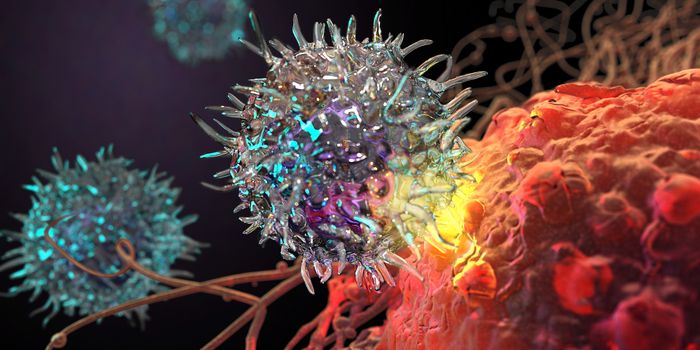Reclassification of Gene Variants Linked to Hereditary Colorectal Cancer
Colorectal cancer (CRC) remains one of the most clinically challenging malignancies facing our public health system. CRC accounts for the second and third most common cancer in males and females, respectively. In addition, CRC represents one of the most deadly cancers, expected to result in over 50,000 mortalities in 2024.
Hereditary colorectal cancer (HCRC) occurs when a parent passes a cancer gene to a child. Unfortunately, we have not identified a single gene that causes the disease. Hereditary CRC syndromes, such as hereditary non-polyposis colorectal cancer (HNPCC; also known as Lynch syndrome) and familial adenomatous polyposis (FAP), describe a group of genetic diseases that confer a high risk of developing CRC. As our knowledge has expanded, we have learned about a growing number of genetic variants in the genes that predispose carriers to CRC. However, the precise role of some variants in the development of CRC cancer remains unclear. Uncovering more information about these variants, called variants of uncertain significance
As our knowledge has expanded, we have learned about a growing number of genetic variants in the genes which predispose carriers to CRC. However, the precise role of some variants in the development of CRC cancer remains unclear. Uncovering more information about these variants, called variants of uncertain significance (VUS), can aid in optimizing screening and surveillance programs.
Polyposis, a condition in which abnormal tissue grows in the gastrointestinal region, underlies many hereditary CRC syndromes. The most common hereditary gastrointestinal polyposis, familial adenomatous polyposis, contains variants in the APC gene, a tumor suppressor that normally, when unmutated, controls tumor growth.
To address the role of variants in the APC gene, a team of researchers conducted a comprehensive study to understand their clinical significance. The researchers recently published their findings in the American Journal of Human Genetics.
Stakeholders from ClinGen-InSiGHT Hereditary Colorectal Cancer/Polyposis Variant Curation Expert Panel (VCEP) working group developed APC-specific variant classification criteria. The study applied these new criteria to 10,228 unique APC variants from two different databases, ClinVar, a variant database run by the National Institutes of Health (NIH), and the Leiden Open Variation Database (LOVD), curated by the International Society for Gastrointestinal Hereditary Tumours (InSiGHT).
The study aimed to learn more about VUS and the resulting 37% reduction in VUS was significant and encouraging. The analysis resulted in the classification of 41% of VUS from ClinVar and 61% of VUS from LOVD with clinical meaning, most clarified as “likely benign.” Thirty-seven APC variants remained VUS after initial analysis, but 24 (65%) could be reclassified as “likely pathogenic” following additional data-mining-driven analysis.
In addition, using these methods, the researchers also verified the clinical significance of variants already classified. Most of the variants (94% from ClinVar and 96% from LOVD) originally classified as “likely benign” or “likely pathogenic” remained unchanged.
The authors show that reclassification of VUSes using APC-specific criteria significantly reduced the number of indiscriminate variants. Further, the successful reorganization of these variants not only suggests but also instills hope that future advances could stem from similar systematic approaches. Such work could provide more information on unknown genetic variants in large datasets representing other cancers with hereditary links.
Following the study, the researchers played a crucial role in making the details of the reclassification of genetic variants with a role in CRC available through ClinVar and LOVD, allowing for widespread clinical implementation. This information will help oncologists and genetic counselors better inform their patients and apply screening and prevention protocols.
Sources: CA Cancer J Clin, NEJM, Ann Coloproctol, Am J Hum Gen









